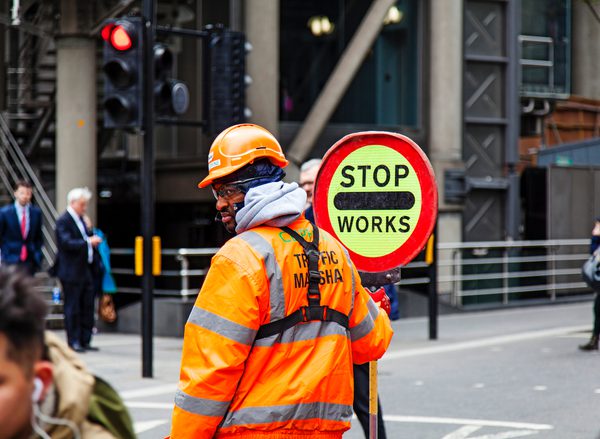
Unfinished business: Redressing inequality in British policy and Black lives
Article
As conversations about race and equality continue to evolve, Black History Month remains a powerful invitation to pause, reflect, and recommit to progress.
The economics of exclusion: Policy, poverty, and the cost of inequality
Deep disparities in wealth and opportunity continue to shape outcomes for Black communities in the UK. Black households hold far less wealth than White British families. The median for Black African households is £34,000, compared to £314,000 for White British. Over 30 per cent of Black Caribbean households are in net debt, double the rate of their White counterparts. These gaps are not accidents, but the result of policy choices that fail to address historic and ongoing disadvantage. Previous analysis by IPPR highlights that reforms to benefits and tax credits have left low-earning Black women especially vulnerable, losing up to £5,000 a year. Economic insecurity is reinforced by barriers to home ownership, limited opportunities to build wealth, and rising living costs. The pandemic laid bare just how fragile financial security really is, with Black and minority ethnic families disproportionately experiencing debt, rent arrears, and job loss. Real equity requires more than awareness; it demands proactive policies to close these divides and ensure lasting security for all.
Black workers are much more likely to be in jobs with very little control, making up 42 per cent of the lowest-autonomy roles and only 26 per cent of those with more say over their work
Digital surveillance and the new face of workplace inequality
Workplace inequality is seen not just in pay gaps but also through growing workplace surveillance. Black workers are much more likely to be in jobs with very little control, making up 42 per cent of the lowest-autonomy roles and only 26 per cent of those with more say over their work. Surveillance technologies are most commonly used in these environments. Nearly three-quarters of Black workers aren’t in a trade union, leaving many without the collective strength to resist heavy monitoring or algorithmic control. This introduces a new layer of digital inequality, where technology reinforces existing hierarchies under the guise of efficiency. The result is greater stress, less protection, and a diminished sense of agency at work. Another pertinent reminder that equality must extend beyond representation to include how labour itself is governed.
Migration, belonging and the politics of exclusion
The UK’s so-called “hostile environment” policies have left a deep and lasting imprint on racial inequality within the migration system. Designed to make life unbearable for those without the “correct” papers, these measures have historically disproportionately harmed Black Britons, as seen in the Windrush scandal where long-term residents were wrongly detained, denied healthcare, and even deported.
Black women in politics face disproportionate levels of abuse; in 2017, Diane Abbott alone received 45 per cent of all abusive tweets sent to women MPs
While the scandal exposed the human cost of a system built on suspicion, many of its underlying practices persist. According to the Equality and Human Rights Commission, discriminatory decision-making within the Home Office continues to embed bias and uphold the architecture of exclusion, producing a migration regime that too often treats Black lives as less credible, less deserving, and less secure in the very country they helped to build.
Representation, resistance and political power
Recent shifts in the political landscape, with veteran leaders stepping down and new voices emerging, have opened the door for fresh perspectives and renewed energy in governance. Black representation in UK politics has improved, particularly following the 2024 general election, but progress remains uneven. Representation is shaped not only by race, but by the intersections of gender, disability, class, sexuality, and age. Data on how these overlapping identities shape political participation remains limited, yet the impact is undeniable.
Black women in politics face disproportionate levels of abuse; in 2017, Diane Abbott alone received 45 per cent of all abusive tweets sent to women MPs. The creation of the Parliamentary Black Caucus in 2025 represents a vital countermeasure, establishing a collective platform to amplify Black voices, influence legislation, and advocate for the concerns of Black communities across the UK.
Equality must no longer be a headline; it must become a baseline.
The power of reflection, the promise of tomorrow
If resilience were a policy outcome, Black Britain would have met its targets decades ago. After generations of being on the receiving end of “reform”, there are signs of genuine progress. Accountability measures following the Windrush Lessons Learned Review, including the appointment of Reverend Clive Foster MBE as Windrush Commissioner, mark important steps forward. Growing public support for racial justice, catalysed by the Black Lives Matter movement, has shifted the national conversation. And more diverse and informed voices are now contributing to policy design and debate (including those that wrote this very blog).
But resilience should not be a prerequisite for fairness. The next phase of racial justice must move beyond acknowledgement toward embedding anti-racism across migration, labour, health, and welfare systems. Equality must no longer be a headline; it must become a baseline. The forthcoming equality bill, now in consultation and due to be implemented in 2026, presents a rare opportunity to make that ambition real: to ensure equity and justice are not just moral imperatives, but legislative ones.
Black history built Britain. The least we can do is build policy that honours it.
Related items

Negotiating the future of work: Legislating to protect workers from surveillance
New technologies are radically transforming worker surveillance. Meaningful worker voice is needed over surveillance practices to address the risks they pose to worker's rights and wellbeing.
Black, Asian and minority ethnic groups at greater risk of problem debt since Covid-19
Before Covid-19, around 4 per cent of households in the UK were identified as having ‘problem debt’ (ONS 2019a); that is, debt which represents a high proportion of disposable income, includes arrears on household bills or credit…
Towards universal opportunity for young people
Outlining a vision for young people which could increase social mobility while also reducing inequality and disadvantage, so that every young person has the opportunity to build a decent life.